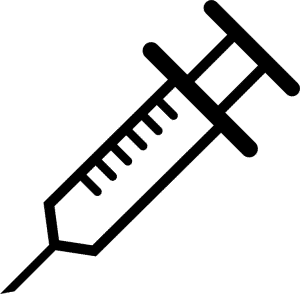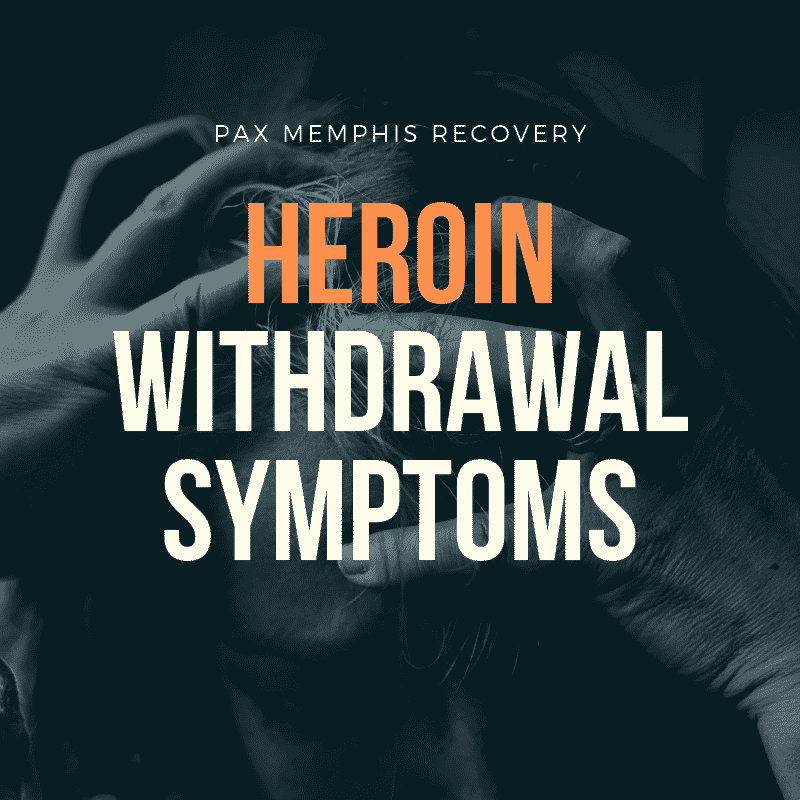A Guide to Heroin Withdrawal Symptoms, Timeline, and Treatment
Heroin continues to play a devastating role in the opioid epidemic that is affecting communities and families nationwide. The number of heroin overdose deaths has been steadily increasing since 2014 and is showing no signs in stopping. Many people continue to use heroin even when they have a desire to stop in order to avoid getting sick from the unruly withdrawal symptoms that arise when a person has become dependent on heroin. Fortunately, medical detox can make your heroin withdrawal period comfortable and painless.
Effects of Heroin Abuse
Heroin is an illicit opioid that has a high potential for abuse. It is synthesized from morphine, which comes from opium poppy plants. Heroin binds to the cells in the brain quickly, resulting in an overflow of dopamine in the brain. This overload of feel-good chemicals promotes feelings of euphoria and well-being, accompanied by a decrease in pain and anxiety. Due to the addictive properties of heroin, a person may begin to crave more and more of the drug because they are chasing that euphoric feeling or are attempting to numb their emotions.
If heroin is abused over a long period of time, a person may suffer from physical and psychological effects such as the
development of depression or other mental illnesses, infections, constipation, a decrease in sexual function, and liver or kidney disease. Heroin also carries a risk of an overdose where a person’s breathing can be suppressed, cutting off the flow of oxygen to the brain. Non-fatal overdoses can result in brain damage, hypoxia, and negative effects of the central nervous symptom.
Repeated heroin abuse has the potential to lead to physical dependency which is characterized by the occurrence of withdrawal symptoms when the body is deprived of a substance. People who have developed a dependence on heroin will rely on the drug to function without getting sick.
Heroin Withdrawal Symptoms and Timeline
Heroin has a very short half-life, so withdrawals can begin as soon as 6 hours after the last dose was taken. The severity and length of withdrawal symptoms vary due to a variety of factors such as
- Length of time the person has been abusing heroin
- Quantity and potency of heroin they have been using
- Administration method (i.e. snorting, smoking, injecting)
- History of previous addictions, relapse, or withdrawal symptoms
- Presence of mental illness or other co-occurring disorders
- Quality of health or other health conditions
- Whether or not they have been abusing other substances in addition to heroin
While heroin withdrawal is usually not life-threatening, it can certainly feel like it as the symptoms are similar to a severe case of the flu. The first symptoms you can expect to feel during the early stages of heroin withdrawal include:
- Muscle aches
- Yawning
- Overproductive tear ducts
- Anxiety
- Diarrhea
- Insomnia
Later stages of heroin withdrawal, which typically occur between 2-5 days after the last dose, include more severe symptoms such as:
- Abdominal cramping
- Sweating
- Goosebumps
- Nausea
- Vomiting
- Intense drug cravings
- Irritability
- Depression
- Confused thinking
Heroin withdrawal symptoms will typically subside after 5-7 days, however, some less severe symptoms, such as fatigue, depression, cravings, and some minor discomfort, may persist for up to one month. Attempting to manage these symptoms alone can be extremely difficult, making it ideal to detox in a medical setting under supervision.
Medical Detox
Trying to complete heroin detox without help and supervision from addiction specialists can be extremely tedious and painful. The brains of many people with a heroin use disorder will tell themselves that the withdrawal symptoms are not worth it, convincing them to relapse. This is particularly dangerous if a person has begun to detox as it can increase the likelihood of an overdose.
Even though the vast majority of heroin detoxes are not fatal, there are still considerable risks involved when attempting heroin detox alone. Individuals can be at risk for asphyxiation from vomiting, convulsions, hallucinations, self-harm, and cardiac distress.
It is strongly recommended that people who are addicted to heroin seek professional help from a medical detox when they choose to get sober. The purpose of a medical detox is to provide you with 24/7 care and supervision as your body is cleansed of all traces of drugs. With medical supervision, specialists are ready to intervene in the event that a complication arises during your stay. Our detox specialists at PAX Memphis will do everything possible to ensure that your detox experience is as comfortable and painless as possible. This is the first step in recovery.
When you check into detox, your medical history and withdrawal symptoms will be assessed by our staff to determine a detox and treatment plan that will be your best route to success in sobriety. In most cases, you will be given detox medications to help alleviate feelings of discomfort and irritability.
Heroin detox is best accomplished through medically assisted treatment, using medications like Suboxone to slowly taper you off of heroin while effectively alleviating your withdrawal symptoms. Suboxone is composed of Naloxone, an opioid, antagonist, and Buprenorphine, a partial opioid agonist. These chemicals will bind to the same opioid receptors in the brain that heroin does, without producing the euphoric effects. Instead, Suboxone helps manage withdrawals by slowly lowering the dose each day until your body regulates itself.
Once your withdrawals have subsided, the next step in recovery involves heroin rehab.
Heroin Rehab
Medical detox is a crucial, important first step in getting sober. However, people who are addicted to heroin are more likely to stay sober if they seek addiction therapy to treat the underlying causes and conditions of heroin addiction. Addiction treatment will help prepare you for life in sobriety, teaching you healthy coping mechanisms and relapse prevention tools.
If you or a loved one is suffering from heroin addiction, don’t let withdrawals stop you. Our caring addiction specialists at PAX Memphis Detox are here to help you during your heroin detox process.
Sources:
National Institute on Drug Abuse Overdose Death Rates
National Institute on Drug Abuse DrugFacts: Heroin
Substance Abuse and Mental Health Services Administration Buprenorphine
